Air Duct Cleaning
Chimney Inspection and Repairing Service

What is the process of a chimney inspection?
This is what you can expect during the process of a chimney inspection:
First, The sweeping chimney process begins with a thorough inspection of the outside and inside of the chimney. During the examination process, if the hiring team finds any issues like structural deterioration or blockages, they will list them and report them to you. They might use a special camera to inspect the inside of the chimney flue. It will help them assess the chimney’s condition and identify potential problems.
After your approval, the process could take 30 minutes to 2 hours; however, the time may vary due to your chimney’s size and condition.
If you’re due for a chimney inspection or have a problem with your chimney, contact a professional inspector today. They will be able to guide you better to keep your home safe and sound.
Why should you get your chimney inspected and Repaired?
There are many reasons why you should get your chimney inspected regularly.
- First and foremost, it is a safety issue; you must not overlook it. A buildup of creosote and soot can lead to a chimney fire, which can be very dangerous.
- Second, a blocked or damaged chimney can cause harmful gasses to build up in your home, which poses a severe threat to your and your family’s health.
- Finally, regular inspections help extend the life of your chimney by ensuring that it is free of debris and in good repair.
So why take the risk? Get your chimney inspected today, and rest assured that your home is safe and sound.
The most common chimney problems:
Some common chimney problems include structural damage, blockages, and creosote buildup. Structural damage can occur over time due to weathering or wear and tear. Blockages can be caused by debris, animals, or even objects falling into the chimney. Creosote is a black, sticky substance that accumulates on the sides of the chimney wall and can be very explosive.
Feel free to hire professional services if you need clarification on whether your chimney has any of these problems. It’s always best to get help from the pros in the field.
The cost of a chimney inspection:
Well, maintaining your home is no doubt a costly endeavor. Still, the good news is that chimney inspection is not heavy on your pockets. It usually costs anywhere from $75 to $200, depending on the company you use and the type of inspection you need.
Conclusion:
To wrap up, we can say that It’s important to get your chimney inspected and repaired regularly, as this is a necessary expense to ensure the safety of your home.
Still have questions in your mind, Please read the FAQ section. Or contact us by dialing our helpline # (240) 252 1274 to grab further details regarding our economical packages.
FAQ
What is the life expectancy of a chimney?
When it comes to the life expectancy of a chimney, it depends on several factors, such as the materials used to build the chimney, the climate it’s exposed to, and how well it’s maintained. However, a chimney can last many years with proper care and maintenance.
How often should a chimney be checked?
Experts recommend chimney cleaning once a year, preferably in the fall, before you use your replace regularly.
What are the alarming signs for my chimney inspection?
If your chimney is terrible, you’ll probably know it. You might see cracks in the bricks or mortar or notice that the ue liner is deteriorating. If your chimney is in terrible shape, it could pose a safety hazard. It’s best to have it inspected by a professional.
How long do brick chimneys last?
Brick chimneys typically last around 100 years but can last even longer with proper care and maintenance.
How common are chimney leaks?
Chimney leaks are common. If you have a leaky chimney, the first thing you should do is have it inspected by a professional. They’ll be able to tell you what’s causing the leak and how to fix it.
What is the 3 to 10 rule for chimneys?
The 3 to 10 rule for chimneys is that they should be at least 3 feet taller than any other part of the house and no more than 10 feet tall. This ensures that the chimney will draft adequately and not be a fire hazard.
How often should you change your stove pipe?
It would be best if you change your stove pipe every few years to prevent any buildup of creosote, which can be a fire hazard.
What is the seven times rule?
It’s generally recommended that you change your stove pipe once every few years. Of course, this depends on the usage of your stove and how well you take care of it. If you use your stove regularly and keep it clean, you may get away with changing it less often.
Book your service
Please leave us your details, and we will get back to you ASAP
